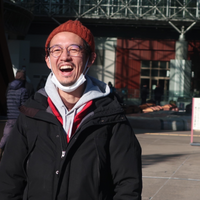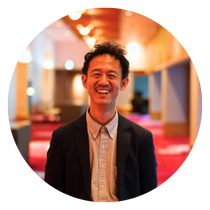
The number of foreign tourists is increasing, and in 2023, as many as 19 million foreign visitors will come to Japan in 10 months. With globalization increasingly taking place throughout the world, more and more companies are hiring foreign nationals.
At the same time, it is necessary for us Japanese to understand the differences between Japan and other countries in order to convey Japanese culture and customs such as “hospitality” and “manners” to foreigners.
For this interview, we spoke with Ms. Kaori Aiko of Kochi Consulting Corporation, who stands to lecture on human resource development, coaching, and etiquette training in China.
Interview Summary
This project is to interview Ms. Kaori Aiko, a professional in manner education for foreigners, who will explain manner issues and points to note when Japanese companies hire foreigners, and how Ms. Kaori Aiko solves these issues.
Intended audience.
Those who are thinking of hiring foreigners in the future.
Those who want to learn Japanese manners and incorporate them into their company.

Kaori Aiko
Born in Fukuoka City, Fukuoka Prefecture, she joined Japan Airlines Co. in 1983 and worked as a cabin attendant for 29 years. Experienced in many VIP flight crews such as the Imperial Family and Prime Minister. She has been in a variety of roles, including 8 years in management, training instructor, recruiting interviewer, and public relations manager. During her tenure, she met more than 300,000 customers and experienced training more than 7,000 personnel from 7 countries. 3.5 years from 2007 to 2010, she was posted to Shanghai, China, where she was involved in human resource management for Chinese nationals. From 2010 to 2012, he worked on company restructuring following the Japan Airlines bankruptcy, and retired from Japan Airlines in 2012. After retirement, he developed training business in China, Taiwan, and Japan. 2015, he joined One Stop Innovation Inc. as a founding member. 2023, he was appointed as Executive Officer and CHO of Kochi Consulting Inc. which is one of the largest HR consulting service providers to Japanese companies in China. In Japan, she is struggling with multicultural adaptation education and inbound human resources education, and since 2017, she has been working to promote “Welcome Words” as a member of the Retail Project Team, a member of the Multilingual Response Council for the 2020 Olympic and Paralympic Games.
Why did we start manner training?

To begin our discussion, we first asked Mr. Aiko about his background and experience as the reason he started his manner training.
Manners Professional|Ms. Aiko’s Past

First of all, could you tell us about your background and experience, Mr. Aiko?

Yes, I am. I joined Japan Airlines as a new graduate and worked there for 29 years. At JAL, I was given various opportunities and was engaged in various jobs such as public relations, service planning, trainer, etc. The most interesting was a project to change uniforms. One of the most interesting was a project to change the uniforms.
– Flight attendants’ uniforms change with the times.
That’s right. We set up a project team, mainly consisting of flight attendants, to create their own functional and convenient uniforms, and I participated as the project leader. (JAL, 8th generation uniform)
– What other work experience have you had?
After my experience as a flight attendant, I became a manager and was transferred to London for six months and to China for three and a half years. In China, I was involved in everything from hiring to managing training.
– Was Mr. Aikoh also in charge of training after hiring?
Yes, it is. However, since we do not hire in Japanese, it is very difficult at first. Since most of them are hired in English, we trained them to get up to about the third level of the Japanese Language Proficiency Test in about a month.
– And after that?
After Japan Airlines went bankrupt in 2010 and Kazuo Inamori came to visit me, I was thoroughly beaten to the punch. But because of this opportunity, I think I was given a great opportunity that has led me to my current work.
– Is it in the education part?
It mainly made me think about business.
During my tenure, I had the opportunity to hear Mr. Inamori speak, and he asked me to think about why this company must exist. He told me to think about the meaning of flying an airplane, its purpose, what an airplane is to society, and what is the raison d’etre of this company. What is the meaning of airplanes and what is the significance of this company’s existence to society?
– These are turbulent times.
I knew nothing about business, and I learned that what I thought was “normal” was actually not normal. I remember that Mr. Inamori never said anything special, but continuously taught me what was natural for a human being and told me to become a proactive person.
– That is an amazing experience. You left Japan Airlines after that, didn’t you?
Yes, I am. I retired from Japan Airlines in 2012. It was around the time when the number of foreigners visiting Japan was increasing, so I wanted to do a job that would bring more and more foreigners to Japan. Also, I had been training foreign human resources in China, so I decided to start a business in China.
– Is it a business of manners or human resource development?
That’s right. Even after major events such as the 2008 Beijing Olympics and the 2010 Shanghai World Expo, there was still a momentum to improve manners in China, which was becoming increasingly internationalized. The event was a great opportunity for the Chinese people to learn about the Japanese tea ceremony and flower arrangement.
– So this is a business for the domestic Chinese market.
Yes, I am. Then, as an inbound business in Japan, I launched a company called One Stop Innovation in Japan in 2015.
– By inbound, do you mean travel business?
It was different from travel. At the time when the “Bakuhai” shopping spree began, I was in the dispatch business, dispatching Chinese personnel to brand stores and department stores. There was a need for Chinese staff in Japan. There were many companies in the same dispatch business, but in order to differentiate ourselves from them, we hired full-time employees and offered a service with a higher level of manners.
– You have made a difference.
We also created a certification test at this time.
Around this time, we often received inquiries from companies asking us where they should look to hire people. The Global Human Resource Business Practice Test (G-EP) shows that those who meet the criteria are well-rounded individuals.
– What was the test spreading about?
It has spread through vocational schools and universities, and to date 13,000 people hold the certification.
– What are your main activities now?
Currently, we are conducting inbound seminars held by the Tokyo Metropolitan Government and Saitama Prefecture, as well as lectures and seminars for small shopping malls and individual stores on how to respond to the arrival of foreigners. In the Corona Disaster, it was also a period of preparation for “Let’s utilize foreign human resources in the future,” so I spoke at online seminars conducted by the government.
Are manners different between Japan and other countries?

We asked Mr. Aiko, who is focusing on manners and human resource development based on his experience at Japan Airlines, about the differences in manners between Japan and other countries.
The basics of manners were universal.
– From your point of view as a manners professional, do you think there is a difference between Japanese and foreign manners?
We often speak of Japanese manners and foreign manners, but the basics of manners are the same. We believe that manners are a way of expressing “consideration” and “consideration” for others in “words” and “forms. There is a word “courtesy,” but “courtesy” is the “heart” and “etiquette” is the “form. The feeling of consideration and heart are the same, but the form in which it is expressed is different.
– I see! So the roots are the same?
Yes, it is. The way it is expressed and shaped differs from country to country.
Reading the air is a source of misunderstanding

It is an eye-opener! Are there any characteristics of Japanese manners?

The “gi” part of the Japanese way of expressing oneself may be characterized by bowing, manners, and etiquette. Other ways of communication differ from other countries. Japan is said to be an “ultra-high context” culture, where people understand the atmosphere and sense what is going on. The idea is that people will understand without being told, but this is also the cause of misunderstandings.
*High context… Methods of communication that are highly shareable and rely on expressions other than words.
– What kind of misunderstandings does it create?
Work is learned by watching. And the fact that they do not even say it or guess it creates misunderstanding. The idea that you can get through without saying it is basically unintelligible to foreigners. Japanese people need to communicate more.
– Are you saying that Japanese communication is lacking?
Yes, it is. It is said from abroad that “Japan is under-communicated. There is very little communication.
*Under-communication… here we are talking about a situation where there is little conversation and communication is difficult.
– But hospitality is great, they say.
Foreign visitors to Japan are very impressed by the various services they receive, such as when they enter a restaurant and are brought water. However, I think some people feel “uncomfortable” with it gradually.
– What does this mean?
As an example from the past, there was an American who slept and didn’t eat or drink in the business class of an airplane. When he turned over or opened his eyes for a moment, I asked him how he was doing and asked him if he would like a drink, which he very much disliked.
– Why did they not want to?
Japanese people are pleased with this kind of service, but it seems that American people want to be allowed to spend their time as they please. They asked me to let them be free to do what they want because they say they want it when they want it. To that person I said, “You really can’t put yourself in that person’s shoes, can you?” I still remember being told that.
– So what is well-meaning to Japanese people is not acceptable overseas.
Yes, it is. With such globalization, I believe that Japanese people must change as well. Japanese hospitality also needs to be updated. The beautiful story of Toyotomi Hideyoshi warming Oda Nobunaga’s sandals may not be understood today.
How are Japanese people perceived overseas?

From here, we also asked about Japanese manners overseas.
To become a Japanese who can be accepted overseas
– What should Japanese people pay attention to when working abroad?
In a word, it is “overcommunication. I think it is just enough to ask them to please shut up for a minute.
*Over-communication…a clear method of communication that allows the other person’s opinion to be heard and also conveys one’s own.
– What are some of the ways to overcommunicate?
For example, after listening to you, I would say, “I understand your opinion. May I express my opinion as well?” It is necessary for us to express our opinions as well. Also, Japanese people have an ingrained sense of courtesy. For example, if you are going to be late, you call ahead of time to let us know, and you hand over your things politely.
– You think over-communication and Japanese politeness are important?
It is important. From now on, I believe that the Japanese people will stand out by combining the two.
Overseas where there are opportunities for chit-chat.

So, what do you focus on when educating Japanese people?

I will of course tell them to overcommunicate and to respect the courtesy they were born with. I also tell them to say anything if they have any doubts. I also tell them to repeat trial and error.
– You learn by making mistakes.
Yes, it is. The other thing is that attitudes toward small talk differ greatly between Japan and other countries.
– Are the chats different?
Japan has a lot of “lubricating” chit-chat. For example, we talk about “the weather is nice” in chit-chat. In Japan, the culture is to build relationships in this way, but overseas, the perception is different.
– What kind of foreign chit-chat do you have?
Overseas, the image is one of “information sharing” and connecting chit-chat to business. Relational culture is Japanese chatting, and transactional culture is foreign chatting.
Relationships: human relations Transactions: business transactions, etc.
– Most Japanese don’t know about this.
Yes, I am. If you don’t know these things, “Are you married?” and other taboo questions without hesitation. Japanese people have a tendency to go into privacy when the conversation is not going well. Compared to people overseas, they are not as smart in finding topics of conversation.
– I didn’t think there was a difference in chit-chat.
Many other people from other countries can talk about their own country, history, and culture. For example, when I ask Japanese people about the tea ceremony, more often than not they don’t know much about it.
– Indeed, they may not talk about or know much about history or traditional culture.
But the truth is, you know this because you learned it in school.
I tell them that they should know about the history and culture of their own country. Just being able to talk about this will make them trust you and bring you closer to success. They are more likely to want to work with us.
– Is it the history and culture of your country? I need to study it again.
While most of the West is a low-context, “tell it like it is” culture, the Asian region has a strong high-context culture. The cultures in Asia are more likely to be sensitive, to read the atmosphere, and to be sensitive to others’ opinions.
*Low context…a clear method of communication that does not rely on context or prior information without knowledge of the premise.
What is important for foreigners working in Japan

From here, we asked about the manners of foreigners in Japan.
The important thing is the confirmation conversation
– So, are there any precautions for foreigners working in Japan?
I mainly tell foreigners that the way of communication is different in Japan. I tell them that Japanese people don’t say things like that, so they should ask more and more, and have “confirmatory conversations. Specifically, I tell them, “Is this correct?” or “Is this correct? or “Is this correct?
– Japanese people have a tendency to talk behind their backs and feel that they need to be understood.
In order to convey the high context of Japan to foreigners, I tell them that Africa is high context as well.
– What, Africa?
Africa is also a high context culture, with many ethnic groups and different languages, so they communicate by jumping, dancing and drumming. When I tell people that Japan is a culture where people communicate without jumping or dancing, people from other countries really understand.
– In that sense, Japan may be a more high context culture than Africa,
What I want to tell foreigners working in Japan
– Is there anything else you tell foreigners?
I tell them that they should find out for themselves what they should do and what they want to do. In other words, we should find our own work.
– It’s about looking for it, not just doing what you are told.
Yes, it is. By taking the initiative, you will become a better communicator. I also tell them that being able to work in Japan’s unique communication culture is a tremendous asset. I tell them that it is a great skill to work in the “world’s most silent communication.
– If you can do it in Japan, communication after returning to your home country will be different.
If you can do well in Japan, you will be a good communicator. A child who can quickly learn Japanese or work well is a child who can work well with high context people. They will proactively ask questions on their own initiative or ask “Eh, why?” even if they get angry.
– Does that mean that being able to listen is a weapon?
As an example of a girl who worked at an izakaya chain, the general manager was often angry, and Japanese people quit the workplace quickly. But foreigners listen to everything even if they are angry, and they communicate well, so the general seems to find them cute. The more you become familiar with high context culture, the faster your Japanese will improve.
– You get used to Japan through communication.
That’s right. By having heart to heart exchanges, we build trust and our Japanese language skills improve. Besides, above all, Japan is a country where you can feel safe. Compared to other countries, there are fewer crimes that hurt people, and you are warmly welcomed wherever you go. This kind of country is actually rare, so I tell them that they should feel safe and comfortable communicating with us.
A sense of purpose is important|What you should do if you hire foreigners

Do you mean that when a Japanese person hires a foreigner, it is important for the Japanese side to have an attitude of acceptance?

That’s right. I would like to tell Japanese people that it is important to listen carefully. Another thing I would like to mention is that in our corporate training programs, we ask the question, “Why did you come to our company? I also want to convey to the Japanese people that it is important to listen carefully.
– Are you asking?
I tell them that the purpose of hiring foreign personnel should be clear and everyone from the president downwards should understand and accept them. This is not the time for foreign personnel to be paid less. If there is no purpose and the only reason is that there are not enough people, foreign personnel will not take root, and a good atmosphere cannot be created within the company. Now is not the time for that. It is important to tell all employees that you want to “promote globalization” or “value diversity,” or some other objective.
Knowing What You Don’t Know! Major Differences from China

I realized that Japanese people also have much to learn in terms of communication and sharing objectives. From here, we asked Mr. Aiko, who also operates businesses in China, about the differences between China and Japan.

What are the differences between China and Japan?

Generally speaking, Chinese people are not well mannered, but they just don’t know. They just don’t know where to stand in line. Even if they are handing out something on the street, people will come in from the side. In a society where this is the norm, it is only natural that they don’t know how to stand in line.
Still, I feel that this has been changing since the Shanghai Expo, with more Chinese going abroad.
– How is it changing?
We have been out in the world and have come to understand what we were doing by being exposed to other cultures and lifestyles in other countries.
For example, I understood when I went abroad that it is embarrassing to spit or sit on the ground. Countries are also making efforts to educate people about such manners.
In China, manners that would be accepted around the world were not widespread, so they are starting by educating and “knowing first”. Now, when I go out to eat with Chinese new graduates, they can use a knife and fork neatly. This is evidence that manners education is spreading.
– Are there any other differences?
There is a firm line drawn regarding private life. Chinese people are very protective of the people around them, their family and friends.
Once inside, of course we talk about family and so on, but I get the impression that it takes a while to get in. They have a clear idea of their territory.
– Do you mean that it takes longer because of cultural differences?
Yes, it is. So, if you treat everyone as if they are readily accepted, you will have a bit of trouble. It is important to have a good sense of distance.
Japanese Manners that Enrich the Heart

What is the significance of learning Japanese manners for people from overseas?

I believe that by learning manners, we can gain a deeper understanding of putting our heart and soul into our work. Foreigners sometimes ask to learn polite behavior and other manners.
– You mean you want to learn the behaviors we do naturally?
Yes, it is. One of the things that interested the Chinese was the manner of “zanshin,” which refers to “handing something over and slowly releasing the hand.
We also explain detailed manners such as zanshin during the training, and we work with Motenas Japan to help participants deepen their understanding of actual manners by experiencing tea ceremonies and other activities.
– Certainly, the experience and mannerisms are more deeply understood when they are combined.
Incidentally, zanshin is a word used in martial arts and geido, meaning “to leave one’s heart for one’s partner.
For example, handing something to the other person and then slowly releasing the hand is an action with zanshin. It is a way of expressing “a heart that cares for the other person.
– Zanshin was a new idea in China. Zanshin was a novel idea.
In the five years I have been in charge of this company, I have told them to pass things in an arc, not in a straight line. However, when the emphasis is on sales, the motion can become clunky. It gives the feeling of “I’m being made to do it for my sales.”
– That is an issue for the future, and I hope they know the significance of learning good manners.
That’s right. Learning Japanese manners is meaningful and helps us understand how to put our heart and soul into it for others.
Summary

– I learned a lot this time. And I would have loved to hear your story when I worked at the hotel lol.
Yes, I know. lol There is always a reason for various actions and manners. Throwing toilet paper in the trash instead of flushing it is another consideration not to clog the pipes.
– In that sense, it is important for us Japanese to learn about different cultures and ways of thinking in other countries.
Yes, it is. People say on the Internet that the population is low or high, but there is no such thing as low or high. It is just that Japan is well educated and people know a lot of things. Therefore, I think it is a bit different to talk about a country as a whole as having a high or low level of population.

It’s interesting that they are different.
– It’s not that I’m afraid or don’t like it because it’s different, but it’s interesting.
For example, if someone can’t eat something because of their religion, I ask, “What can’t you eat?” I would ask them. Thus, the more we communicate and learn about others, the more we will be able to better understand differences. If we understand the differences, we can be tolerant and respond differently.
I want people to find it interesting that it is different.
We would like to share such cross-cultural exchanges with foreigners and Japanese alike, along with the “experiences” that Motenas Japan has to offer.
– It was a pleasure to hear your valuable talk today. Thank you very much.
Thank you very much.
Through this interview, I felt that manners were all condensed into the word “interesting to be different. I believe that without knowing about other countries, mutual understanding is not possible and it is difficult to have a good relationship with each other. I was also moved by the phrase that manners are expressed in different ways in different countries, but that the root of manners is the same. Even though I thought I had understood it in my head, hearing from a professional on manners was something that greatly changed my way of thinking.
Motenas Japan also offers a plan that combines Mr. Aiko’s training with a tea ceremony or other experience. Please feel free to contact us. We will continue to convey the good qualities of Japan through etiquette training and cross-cultural exchange.

30s male writer. He has worked in a hotel for 16 years and is involved in the travel industry. Through his work at travel agencies and hotels, he developed an interest in travel and often goes on trips. His favorite cities are Sendai and Hakata. He conveys the knowledge he has gained through his travels and the charms of Japan with care.


